Top 10 China internet buzzwords of 2012
No doubt, the year 2012 has generated tons of buzzwords or remarks in the cyberspace. These catchphrases provide a lively picture of life and culture in present China. So, in order to better understand China, let’s have a look at the these internet catchphrases of 2012.
1. Are you happy with your life? 你幸福吗?
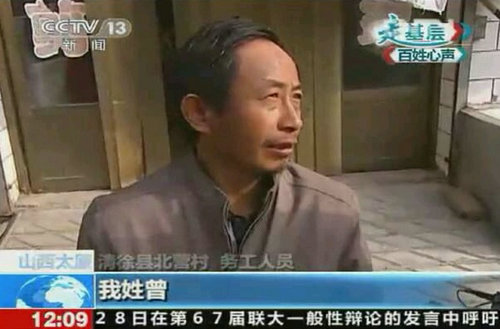 CCTV launched a new program titled Holiday survey: Are you happy? which saw reporters conducting random street interviews in a number of cities, asking local residents whether they were happy. The show sparked much debate among the public.
CCTV launched a new program titled Holiday survey: Are you happy? which saw reporters conducting random street interviews in a number of cities, asking local residents whether they were happy. The show sparked much debate among the public.
Some interviewees’ answers in the program have been startling and have become hits online. The most popular one is as follows: Reporter: Are you happy? (“Nǐ Xìng Fú ma?” which sounds exactly the same in Chinese as “Is your last name Fu?”) Migrant worker: My last name is Zeng.
2. Diaos 屌丝
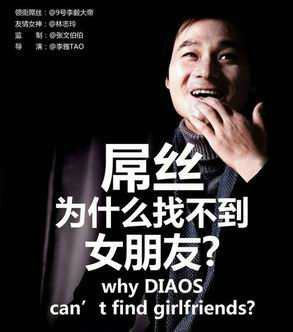 Diaos is thought to be the most talented coinage in 2012, which refers to the group of youth who are not pretty or handsome and don’t have well-paid jobs or rich families to lean on. In one word, Diaos is the under-privileged youth who could only rely on their own talents and hard work for a shabby existence.
Diaos is thought to be the most talented coinage in 2012, which refers to the group of youth who are not pretty or handsome and don’t have well-paid jobs or rich families to lean on. In one word, Diaos is the under-privileged youth who could only rely on their own talents and hard work for a shabby existence.
The phrase is initially coined to set off the other hot word “Gao Shuai Fu” which means “tall, handsome, and rich”. Without a doubt, Diaos means the opposite of “Gao Shuai Fu”. And, once getting out, the funny coinage not only got the attention of mainstream media like People’s Daily and Sina.Com but strike a resonance in the general public who are also self-reliant common people.
3. ×× Style
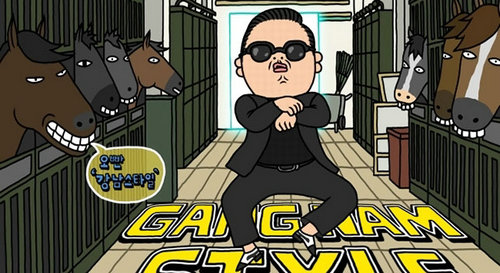 K-pop star Psy’s viral behemoth “Gangnam style” breaks Guinness World Record for most YouTube likes, which has more than 2.9 million likes on YouTube. Of course the song has also spawned a number of viral parodies from people all over China. A“style”craze engulfed the cyberspace.People talked about Shanghai style, Diaos style, pre-school style and even the aircraft carrier style. Apparently, all the characteristic styles derived from common people’s varied innovations to make fun.
K-pop star Psy’s viral behemoth “Gangnam style” breaks Guinness World Record for most YouTube likes, which has more than 2.9 million likes on YouTube. Of course the song has also spawned a number of viral parodies from people all over China. A“style”craze engulfed the cyberspace.People talked about Shanghai style, Diaos style, pre-school style and even the aircraft carrier style. Apparently, all the characteristic styles derived from common people’s varied innovations to make fun.
4. Can I say dirty words? 我能说脏话吗?
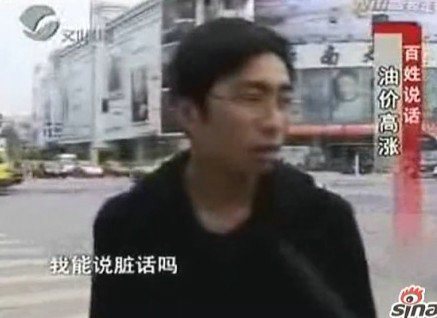 Earlier this year, Chinese Government raised the price of petrol by about 6% and diesel about 7%. Chinese people stepped into an era of 8 yuan per litre, (which was said online to be even higher than the fuel prices in the US.)
Earlier this year, Chinese Government raised the price of petrol by about 6% and diesel about 7%. Chinese people stepped into an era of 8 yuan per litre, (which was said online to be even higher than the fuel prices in the US.)
Reporters from Jiaxing TV Station set out to interview passers-by on the streets to ask about their opinions on the current fuel prices hike. A man interviewed resonated with Chinese netizens, by replying to the reporters with a question, “Can I say dirty words?” When the reporters chased, “You are angry, right,” the man responded, “If I can’t, I have no other words to say,” and then walked away. When harsh social realities were being discussed, like a public servant owning twenty houses, people would use the classic reply“Can I speak dirty words?”to show their indignation.
5. I would not believe in love ever again. 我再也不相信爱情了.
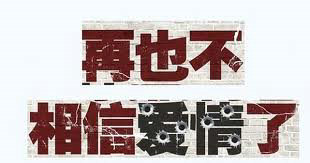 No one could tell the original source of this catchwords. But one thing that could be assured is that the remark now is most frequently quoted in reaction to celebrity breakups, which do happen a lot these days.
No one could tell the original source of this catchwords. But one thing that could be assured is that the remark now is most frequently quoted in reaction to celebrity breakups, which do happen a lot these days.
6. I feel tired. I think I would not love again. 累了,感觉不会再爱了.
 “I feel tired. I think I would not love again.” This sentimental remark comes from the post of a 13-year-old on Douban Forum, and thus shocked tens of thousands of netiznes online. Later, netizens began to use the remark to make “pretentious” sentence to express their exaggerated depression for something or someone. Like, if you got fed with playing World of Warcraft, a hit online game, you could say, “Tired of it, I’m afraid I would not love again.”
“I feel tired. I think I would not love again.” This sentimental remark comes from the post of a 13-year-old on Douban Forum, and thus shocked tens of thousands of netiznes online. Later, netizens began to use the remark to make “pretentious” sentence to express their exaggerated depression for something or someone. Like, if you got fed with playing World of Warcraft, a hit online game, you could say, “Tired of it, I’m afraid I would not love again.”
7. I could not stand it any time. 随时受不了.
 This catch remark came from Weibo (China`s twitter). A micro-blogger nicknamed Korean Miss Cui began to distribute news. Her humorous remarks like “could not stand it any time,”“report your longitude and latitude” or “take it seriously” began to catch the attention of some celebrity micro-bloggers like real estate tycoon Pan Shiyi and was widely circulated among the netizens.
This catch remark came from Weibo (China`s twitter). A micro-blogger nicknamed Korean Miss Cui began to distribute news. Her humorous remarks like “could not stand it any time,”“report your longitude and latitude” or “take it seriously” began to catch the attention of some celebrity micro-bloggers like real estate tycoon Pan Shiyi and was widely circulated among the netizens.
8. Positive energy 正能量
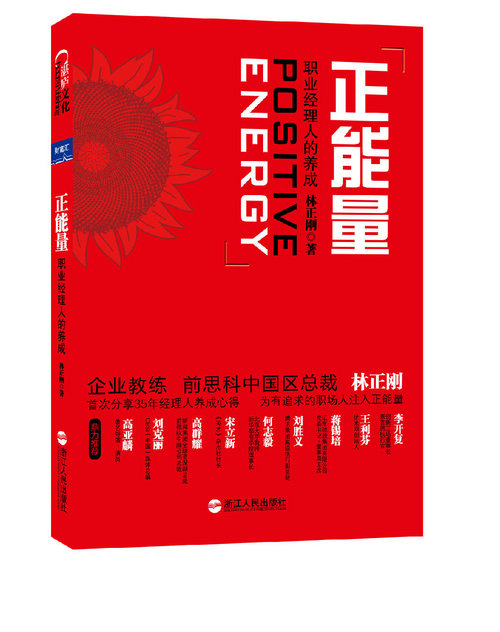 Before you could notice, the word “positive energy”is becoming common in the newspapers, periodicals, magazines, books and advocacy slogans. Many bloggers also like to quote the phrase to energize themselves or others. “Positive energy” is a term popularly used on the Chinese cyberspace to refer to “giving an impetus to something.”
Before you could notice, the word “positive energy”is becoming common in the newspapers, periodicals, magazines, books and advocacy slogans. Many bloggers also like to quote the phrase to energize themselves or others. “Positive energy” is a term popularly used on the Chinese cyberspace to refer to “giving an impetus to something.”
9. XX of China 中国好××
 What’s the most “in” talent show in China? Yes, the answer would definitely be The Voice of China. The TV program is so hot that the brand name also evolved into a life of its own. Now, on the internet, all inspiring excellent things are labeled XX of China like “Good Men of China”.
What’s the most “in” talent show in China? Yes, the answer would definitely be The Voice of China. The TV program is so hot that the brand name also evolved into a life of its own. Now, on the internet, all inspiring excellent things are labeled XX of China like “Good Men of China”.
10. Yuanfang, what do you think about it? 元芳,你怎么看?
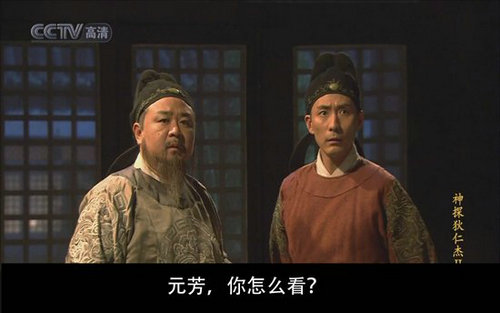
The most recent addition is the Yuan Fang font, which became very popular on the Internet in one night; it is said that more than 2.5 million people used this phrase online in one day alone.
The Yuan Fang font popularity comes courtesy of TV series Amazing Detective Di Renjie (《神探狄仁杰》). The television series, now in its fourth season, is based on detective stories related to Di Renjie, a Tang Dynasty magistrate and statesman. The show has been immensely popular- lauded by critics and viewers alike. The main characters Di and his bodyguard Li Yuanfang continually battle with a villain to create some thrilling TV. Usually, when there is a tough case to solve, Di will discuss with Yuan fang the best course of action- which is where his catchphrase has come from.
The Detective Di usually ask: “Yuan Fang, what do you think about it?” And Yuan Fang usually answer “Your honor, I think this matter is very weird.” or “There will be a big secret behind this matter.”

